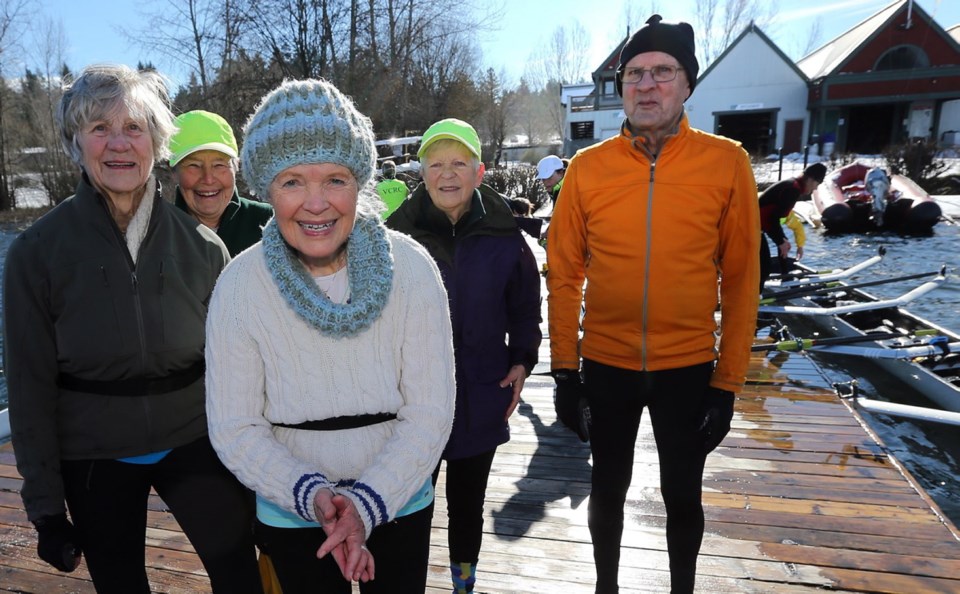Five seniors are proving to be an inspiration to Canada’s Olympic rowing hopefuls at Elk Lake. The five ply the water at least three times a week all-year round, often training side-by-side with the country’s best rowers, some of whom are young enough to be their grandchildren.
All five — Vivienne Irving, Marianne Fraser, Paula Maasland, Diane Mothersill and Bill Vogel — turn 80 this year and compete locally and internationally in a new category for rowers age 80 to 85.
“They are an inspiration, to say the least,” said David Calder, four-time Olympian and silver medallist at the 2008 Beijing Games.
“I would always see them on the lake. Every day I was out there, they would be out there. Even on days when the weather was terrible, and I was out there in misery, they were there at the same time.”
But the modest senior rowers say their young contemporaries are the ones they look up to.
“Some of the younger rowers are quite amazed that we are still competing,” said Irving, who became hooked on the sport a few years ago after trying out an indoor rowing machine.
“They say to us: ‘We are so proud of you.’ ”
The physical activity keeps them feeling young. “It makes for guilt-free doughnuts,” said Vogel. “You go home tired but it doesn’t compare to how good you feel afterwards.”
What they are doing makes sense, according to an expert who studies the relationship between exercise, health and age.
“Rowing is an excellent choice for older people looking for a new recreational activity,” said Brian Christie, a professor at the University of Victoria’s Centre on Aging. “It not as stressful on the knees and other parts of the body as other sports.”
But the social aspect of rowing is just as important, he said. “It’s social and cardio.”
For example, when Elk Lake is too rough, the group trains together on indoor equipment, commonly referred to as erg (shortened from ergometer) machines.
“Research has shown the benefits of exercise to mental health,” Christie said.
“Exercise releases chemicals that have been proven to enhance brain function. The exercise keeps the body fit and they function better mentally as well. It’s a positive cycle.”
The group belongs to the Victoria City Rowing Club and shares the facility on Elk Lake with the Canadian national team, students of the University of Victoria and youth rowing groups.
The atmosphere around the clubhouse is not unlike that of a family reunion. And having younger people around them is like a recipe for good health.
“There is no talk of doom and gloom, especially during regattas,” Fraser said.
“We are focused on our workout schedule, training up to five times a week leading up to a competition.”
Olympians such as Calder aren’t the only people the senior group has infuenced. Teenage rowers have also taken note.
“They are a source of inspiration for us,” said Antonia Frappell, 16, a member of the Youth 17 team at the Victoria City Rowing Club.
“What’s really important is how they show how the sport stays with you,” Antonia said.
“They are there at 5 a.m. in the cold, but they are always happy to talk, happy to share stories.
“There is a sense of camaraderie that inspires you to keep doing what you love to do.”
As the group looks to compete in their new age group, they see themselves as the vanguard of a wave of Canadian rowers coming up the ranks.
“Rowing is easy to learn,” Vogel said, “but you spend the rest of your life learning how to do it right.”



